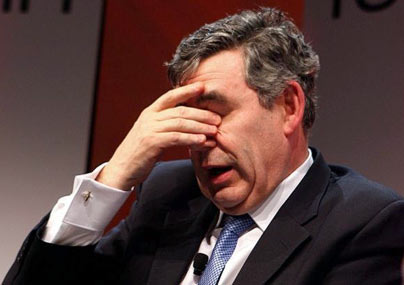
"Faster, faster, faster til the love of speed overcomes the fear of death."
That quote, from Hunter Thompson, seems to have been the motto of the last decade. It was made into a poster for the magazine Fast Company -- itself a beacon for business at the speed of light. Globalization, together with new technology, made everything that was cool fast. Deals were done in days, industries reconfigured overnight. Peter Drucker told us we should build companies like tents, expecting nothing to last and everything to change. So we all became 24-hour road warriors, heedless of time zones and jet lag.
Is it just me, or do I hear a slight sigh of relief that, at last, everything has to slow down a little? There might be some good reasons for doing so. In a famous experiment, volunteers were asked to read a number of statements about a criminal. Some were false -- and they were easy to distinguish because they were in color. At the same time, numbers crawled along the bottom of the screen, rather like stock prices on CNBC. Some of the volunteers had to write down each time they saw the number '5'.
When the session finished, the volunteers who'd had to look for the number '5' differed in several significant ways from the rest. They more frequently mistook false statements for true ones. That in turn meant that they decided the criminal's sentence should be twice as long as that recommended by the less distracted volunteers. It didn't take much -- merely a search for the digit '5' -- to change quite radically the precision and quality of the volunteer's reception of information. With few mental resources available, that they made bad judgments was inevitable. Careless thinking costs lives. I've always thought the stock tickers distracted critical judgment. What the experiment showed was that that distraction significantly worsened a simple ability to distinguish truth from falsehood.
Maybe that explains the mess we're in. Most business people I know are distracted by signals and data a lot more complex than looking for the number '5'. Their Blackberries, mobile phones, email, texts, newspapers, radio and the ubiquitous news stations all scream for attention. Everything is urgent -- and that's before you even begin to grapple with face-to-face relationships. No wonder all those bad deals got done, on rotten terms, by executives too distracted to know what they were doing. Being busy is not the same as paying attention. Indeed, the experiment would suggest they may be polar opposites.
The brain is attracted to movement and entrepreneurs have a bias for action. The combination can be devastating. Many of us would rather do anything than sit still and think. Few of us know how to do that, not because we're stupid but because it's hard. When I worked at the BBC, I used to schedule thinking time for myself, but it was never something I could do at my desk. Instead, I'd leave the office and walk around the block for twenty minutes. The beauty of that was that twenty minutes is short enough that you can't seriously argue you can't afford the time. But it is long enough to comb through a lot of knots and tangles in your head.
The other night I was dining with a business leader close to Britain's Prime Minister Brown well. The man, his friend said, is simply exhausted and distracted. All I could think of was the Exxon Valdez, not a happy thought in the midst of an economic crisis. If the current downturn means that we all slow down a little, that may turn out to be the smartest strategy of all. Because the economy surely can't recover until we do.
